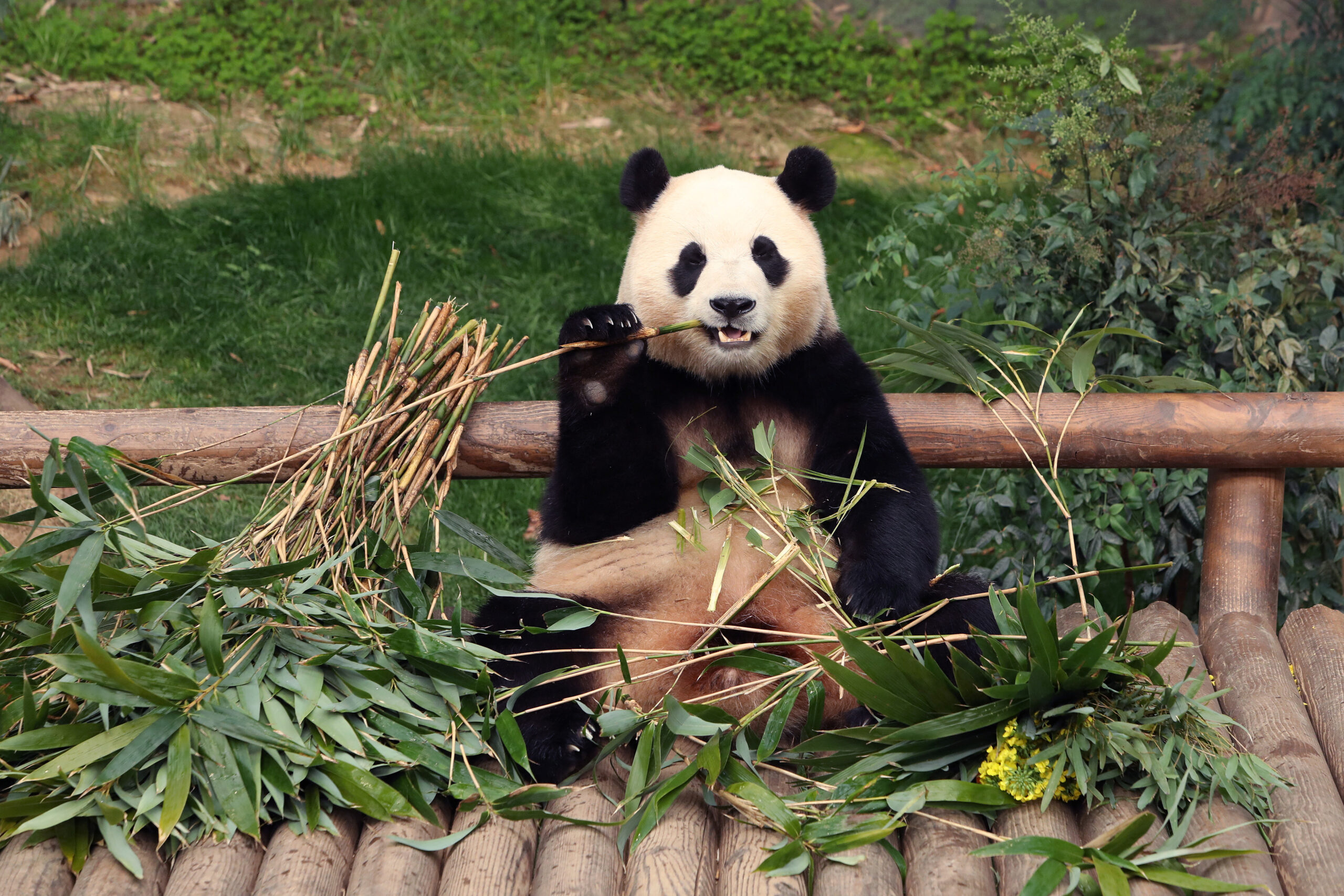S. Koreans bid farewell to beloved panda Fu Bao ahead of China return

Giant panda Fu Bao eats bamboo at Everland amusement park on March 03, 2024 in Yongin, South Korea. Fu Bao, a female giant panda born in Everland amusement park and turning four years old this year, will be transferred to the China Conservation and Research Center for the Giant Panda in Sichuan Province in early April under an international agreement. Chung Sung-Jun/Pool via REUTERS
SEOUL — A South Korean zoo on Sunday threw a farewell party for Fu Bao, the first giant panda born in the country, ahead of the beloved animal’s scheduled return to China.
Fu Bao, which means lucky treasure, has attracted a huge fan base ever since she was born in July 2020 at the Everland amusement park just south of Seoul. The panda is set to return to China’s Sichuan province next month after spending a month in quarantine.
Thousands of visitors queued up in the early morning chill to attend the farewell event, with many saying they will miss the panda once she’s gone.
READ: Pandamania: Where to see pandas in Europe, North America and Asia
“I was mentally ill three years ago, but Fu Bao has helped me get through it and brought me a lot of comfort,” said Kim Min-ji, a 31-year-old visitor. “It’s sad to say goodbye, but we need to let her go. I wish she goes safely and will be happy.”
Article continues after this advertisementJo Ah-hyeon, 24, said she waited more than four hours to see Fu Bao. “This is our last chance, you never know when we’ll see her again so I had to come,” she said.
Article continues after this advertisementZoo keeper Kang Cher-won, who has been caring for Fu Bao, said the panda had given him so much love as well as teaching him a lot about the critically endangered species. Online videos of Kang caring for Fu Bao, and her clinging to him, are very popular in South Korea.
READ: BLACKPINK pulls video after backlash in China over baby panda
“Fu Bao is a friend who has played many roles,” Kang said. “She was my first panda cub, and my heart is filled with memories of her that I will never forget all my life.”
The cub’s parents, 10-year-old female Ai Bao and 11-year-old male Le Bao, arrived in 2016 from Sichuan province, the home of the giant pandas, as part of China’s “panda diplomacy”. Last July, Ai Bao gave birth in South Korea to giant panda twins.
Female pandas can only conceive once a year for a limited period, and cubs have very low chances of survival as they are often born prematurely, usually weighing less than 200 grams (0.44 lb).